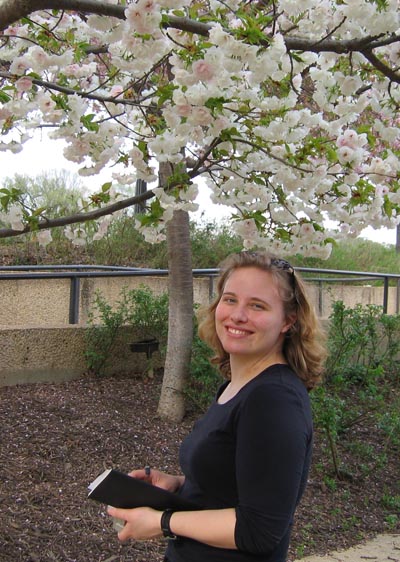I grew up on the “pavements gray” of Cleveland, Ohio longing for a greener and more nourishing urban environment. As far back as I can remember I’ve been interested in and involved with varying campaigns and methods of environmental education. However, it wasn’t until I took Food and Society (by the remarkable professor Smith at the University of New Hampshire) in pursuit of my BS in Environmental Conservation, that it dawned on me that food is the key! Truly nourishing food is the linchpin for both rural and urban regenerative landscapes. Food is our most tangible link to our environment. It is also perhaps the most unifying, non-partisan, instinctual, and delicious way to teach and experience conservation.
In 2006 I was stationed in Romania as Peace Corps Volunteer. At my first opportunity to travel I headed to Lithuania to learn more about the land of my ancestors. Ironically, I discovered more about my future than I did about my past. There I met Sarah and Andrew by chance in a youth hostel in Klaipeda during their seed-consciousness-raising trek across Europe. We talked for hours about organic agriculture, food security, and the virtues of open-pollinated seed.
Our conversation that night left a lasting impression. If food was the key to getting people to reintegrate into their communities and environment, then saving seed was the key to sustainable food. Beyond buying local organic foods or tending a garden, the process of stewarding seeds closes the food production loop and empowers seed stewards with the ability to feed their families and communities with tasty, healthy, locally appropriate food year after year. Yet, in all of the green talk during all of the environmental classes, campaigns, and internships I had been involved with, no one ever stressed the importance of seeds. Seeds are a vital component of the burgeoning foodie and green lifestyle movements although one that is often misunderstood or ignored.
In February of 2008 I invited The Seed Ambassadors to Romania to give a series of workshops in the small rural villages surrounding Cluj. The workshops were a tremendous success and inspired the creation of the Transylvania branch of Slow Food International. When my Peace Corps service in Romania ended Sarah and Andrew invited me to join their work. Since moving to Oregon I’ve had the opportunity to learn firsthand about farming, seed saving, and to assist them in spreading the good seedy word. I’m enjoying my time learning from these seed masters, and I hope to eventually apply their self sustaining and holistic methods to urban farms and gardens.
|


